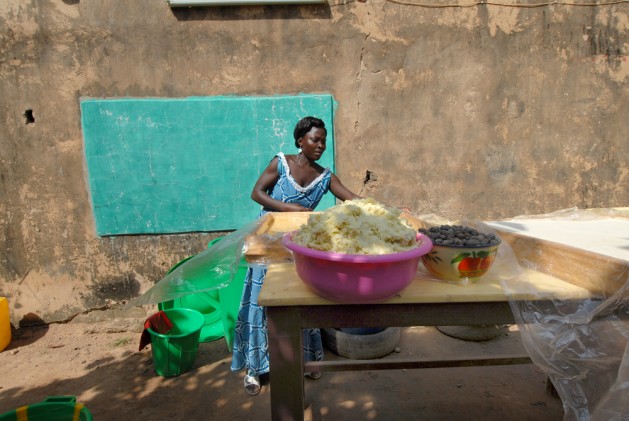
Shea butter contains abundant amounts of antioxidants as well as vitamins A and E, and is used in many products for the hair and skin. The smooth and silky texture of Shea butter may feel lovely in these products, but there are also unseen costs that deeply affect the lives of the women who make it. The women in the African country of Ghana have been predominantly in charge of both harvesting and processing Shea nuts into butter for many decades. The country’s annual 130,000 tons of Shea butter production falls largely onto the backs of the three million women workers in rural Ghana, where due to the unfortunately unregulated industry, many are paid the equivalent of only a few dollars per week, treated very poorly and sometimes even beaten.
What are the issues?
To start with, the women must collect the Shea nuts over considerably treacherous terrain, complete with the occasional poisonous snake hiding in the brush nearby. Several miles must be traveled on foot to collect the Shea nuts, and later they must return to cook them over a hot fire on an equally hot day in order to make the necessary paste. The women, who are often the breadwinners for families with children in need of school supplies, uniforms, shoes and other essentials, must sometimes endure the abuse and jealousy of their partners or other community members when their work becomes successful. For example, when a wife’s decisions are always to be made by her husband, if he feels slighted by her success, he may force her to quit working. Others have been driven from their home communities under suspicion of “witchcraft” after becoming successful with her Shea butter business, which is believed to be due to jealousy as well. Some women are beaten or otherwise mistreated for various reasons associated with their work.
There’s hope on the horizon
The good news is there are some efforts in the works to help the women ensure fair wages and improved working conditions. Several cooperatives have sprung up in the region to advocate for and instruct women on business strategies and ways to improve harvesting and packaging methods. StarShea, Ojoba Women’s Shea Butter Cooperative, Sangnarigu Women’s Shea Butter Group and Global Beauty Butter (in coordination with Global Mama) are all examples of such endeavors, some of which even offer health care enrollment services and literacy classes. Income increases are well-noted by women after joining these and other groups, with some incomes increasing from $3 per month to $40 per month. Musician Alexis Krauss of the indie band Sleigh Bells has taken the initiative to improve the situation by getting involved with Global Mama and ensuring the production she oversees (Global Beauty Butter) results in all proceeds returning to the hands of the women of Ghana. Once there, infrastructure projects are financed with the profits to keep the profits in the community. Overall, the work of the cooperatives is guiding the women toward improving their own working conditions and earning power with education, enhanced business savvy and the backing of others to assist them with struggles along the way.



